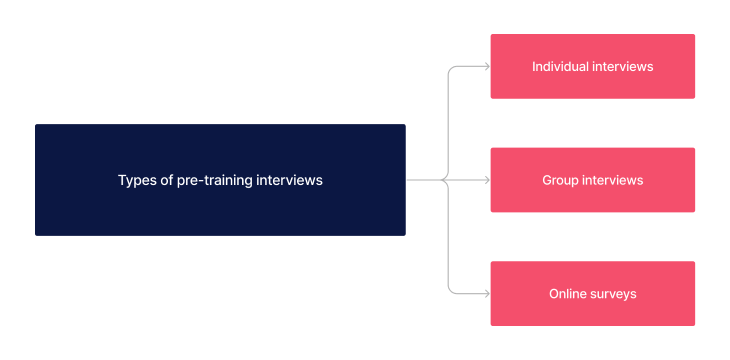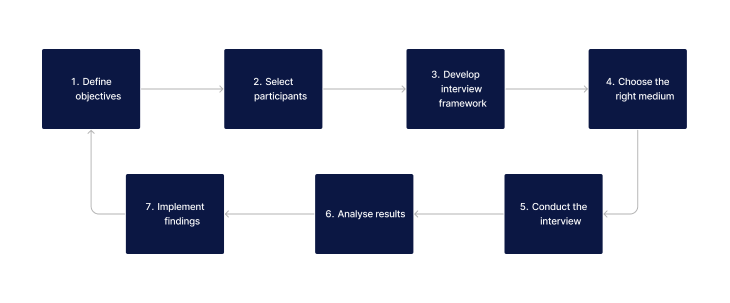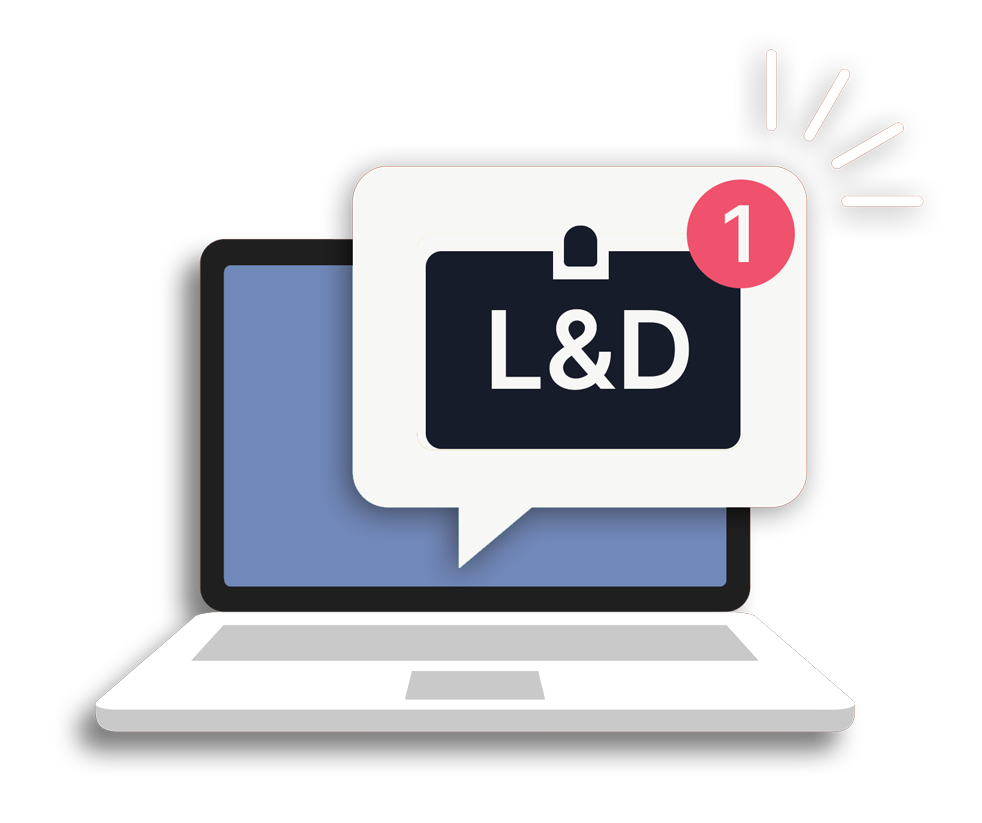In the rapidly evolving field of healthcare, the importance of tailored educational strategies cannot be overstated. pre-training interviews have emerged as a key tool in this process, offering invaluable insights into the needs and preferences of healthcare professionals. This comprehensive guide delves into the nuances of conducting effective pre-training interviews, shedding light on their role in enhancing the educational experience and outcomes in the healthcare sector. From understanding the basics to exploring advanced techniques, this article serves as an essential resource for learning and development managers aiming to foster a more informed and skilled healthcare workforce.
What is a "Pre-Training Interview"?
A pre-training interview is more than just a preliminary conversation; it is a strategic tool used by educators to delve deep into the training needs of healthcare professionals. This process involves an in-depth exploration of the individuals' professional backgrounds, current roles, and future aspirations within the healthcare industry. By engaging in this dialogue, educators can uncover the specific skills and knowledge that healthcare professionals need to excel in their roles, thereby crafting training programs that are not just informative but transformative.
Why are Pre-Training Interviews Important to Conduct Before Education?
The rationale behind conducting pre-training interviews extends beyond mere data collection. These interviews represent a critical opportunity to align training content with the actual needs of healthcare practitioners. They play a pivotal role in identifying areas where healthcare professionals may require additional support, be it in dealing with complex health conditions, understanding new healthcare technologies, or adapting to changes in healthcare policies and regulations. By tailoring training in this way, educators can ensure that healthcare professionals are not only well-informed but also well-prepared to face the challenges of their demanding field.
What Types of Pre-Training Interviews Are There?

Pre-training interviews can take various forms, each suited to different training objectives and learning environments. From individual face-to-face meetings to group workshops and digital questionnaires, the method of conducting these interviews can significantly influence the kind of feedback and insights gathered. It is essential for educators to select the most appropriate type of interview based on the specific context and goals of the training program. This section outlines the key types of pre-training interviews and their specific applications in healthcare education.
| Type | Description | Application |
|---|---|---|
| Individual Interviews | Personalised discussions that delve into an individual's specific training needs, experiences, and career goals. | Creating bespoke training plans that cater to the unique requirements of each healthcare professional. |
| Group Interviews | Interactive sessions that focus on gathering collective insights and identifying common training needs among a team. | Developing training modules that encourage team collaboration and address shared learning objectives. |
| Online Surveys | Web-based questionnaires that provide a convenient and efficient way to collect feedback from a large group of participants. | Conducting broad-scale needs assessments to inform the development of comprehensive training programs. |
Examples of 'Pre-Training Interviews'
The application of pre-training interviews in healthcare encompasses a wide array of scenarios, each tailored to specific training needs and objectives. These examples illustrate the versatile nature of pre-training interviews, showcasing how they can be effectively implemented in various healthcare settings to enhance the quality and relevance of training programs. From individualised sessions focusing on specialised skills to group discussions aimed at improving team dynamics, pre-training interviews can be adapted to meet a diverse range of educational needs in healthcare.
- Conducting one-on-one interviews with physicians to assess their proficiency in using new medical technologies and identifying training needs in this area.
- Facilitating group sessions with nursing staff to explore their experiences with patient care protocols and identify opportunities for improvement in training.
- Implementing online surveys for administrative staff in healthcare settings to determine their familiarity with updated healthcare regulations and the need for additional training in this domain.
How to Conduct Pre-Training Interviews Before Education (Steps)

The process of conducting pre-training interviews is a carefully orchestrated one, requiring meticulous planning and execution. This section provides a step-by-step guide to conducting these interviews, emphasizing the importance of each stage in the process. From initial planning to final implementation, each step plays a crucial role in ensuring that the pre-training interviews are effective in gathering meaningful insights and shaping training programs that truly resonate with the needs of healthcare professionals.
- Define Objectives: Clearly articulate the goals of the interviews. This could range from understanding specific training needs to identifying broader educational goals.
- Select Participants: Choose a diverse group of healthcare professionals, ensuring a wide range of perspectives and experiences are represented in the interviews.
- Develop Interview Framework: Craft a set of targeted questions that align with the interview objectives. Ensure these questions are open-ended to allow for in-depth responses.
- Choose the Right Medium: Select the most suitable format for the interviews, whether it be in-person, virtual, or written, based on the availability and preferences of the participants.
- Conduct the Interviews: Execute the interviews with professionalism and empathy, creating a conducive environment for participants to share their honest feedback and experiences.
- Analyse Results: Thoroughly analyse the information gathered, identifying key themes and insights that can inform the design of the training program.
- Implement Findings: Apply the insights from the interviews to develop or refine training programs, ensuring they are tailored to the specific needs and preferences identified.
Considerations When Performing Pre-Training Interviews in Healthcare
Performing pre-training interviews in the healthcare sector requires a nuanced approach, taking into consideration various factors that can impact their effectiveness. This section discusses the critical considerations to keep in mind when conducting these interviews, including the importance of cultural sensitivity, ethical considerations, and the need to adapt to the unique challenges of the healthcare environment. By taking these factors into account, educators can ensure that the pre-training interviews are not only effective in gathering relevant information but also respectful and considerate of the participants' experiences and perspectives.
- Ensuring sensitivity to the diverse cultural and professional backgrounds of healthcare professionals, adapting interview techniques to suit their unique needs and experiences.
- Maintaining strict confidentiality and ethical standards in the handling of information gathered during the interviews, fostering trust and openness among participants.
- Translating the insights from the interviews into practical training interventions that directly address the specific skills and knowledge gaps identified, thereby enhancing the overall effectiveness and relevance of the training programs.
Related Resources
- LMS in Healthcare: The Roles, Benefits and Pros and Cons
- Guide to Mandatory Training
- How Do I Align Training Programs with Organisational Goals?
- How to Perform Post-Training Assessments
- Guide to Compliance Training (for Healthcare Managers)
- How Can I Implement Self-Directed Learning Strategies?
- How Can Organisations Create a Learning Culture that Attracts Amazing People?
- How to Manage an Effective Staff Training Program
- Research Spotlight: Motivation for Self-directed Training
Conclusion
In conclusion, pre-training interviews are an indispensable component in the development of effective training programs within the healthcare sector. By conducting these interviews with a strategic and thoughtful approach, educators and learning development managers can greatly enhance the relevance and impact of their training initiatives. This process not only ensures compliance with the evolving standards of healthcare education but also fosters a culture of continuous learning and adaptation among healthcare professionals. Ultimately, well-executed pre-training interviews contribute significantly to building a more skilled, knowledgeable, and responsive healthcare workforce, capable of meeting the complex and dynamic challenges of modern healthcare.
References
- Goniewicz, K., Goniewicz, M., Włoszczak-Szubzda, A., Burkle, F.M., Hertelendy, A.J., Al-Wathinani, A., Molloy, M.S., & Khorram-Manesh, A. (2021). The importance of pre-training gap analyses and the identification of competencies and skill requirements of medical personnel for mass casualty incidents and disaster training. BMC Public Health, 21(114). Retrieved from BMC Public Health.
- Shift eLearning. (n.d.). The Importance of Pre-Training Engagement. Retrieved from Shift eLearning.
- Apploi. (n.d.). Hiring in Healthcare: Seven Effective Interviewing Strategies. Retrieved from Apploi.
- SHRM. (2020). Training Staff to Be Better Interviewers. Retrieved from SHRM.



